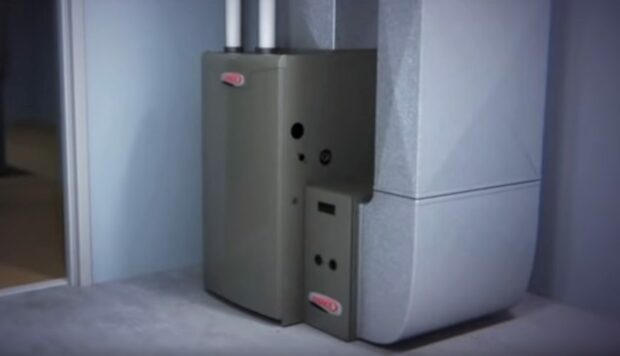Furnaces have high efficiency, low noise, long life, reliability, and more, hence remain the most popular home heating choice. Furnaces have a lot of versatility – most often, there’s a furnace to suit any home heating need. Commonly known as a forced-air system, they warm the house or take part in a cooling cycle as a core home air-conditioning system.
Furnaces can heat your home using natural gas, propane, or electricity. The air enters through the duct network into your living space. In this article, we will discuss the main home furnace types and the several benefits they bring.

Gas Furnaces
According to the Furnace USA HVAC Service website, A natural gas furnace is reliable since gas is widely available. They do an outstanding job of evenly heating the whole house. Gas jets are pushed along a burner to create a sizeable directional flame that generates hot air and then circulates through HVAC ducts through fans.
These furnaces are very efficient but can be quite costly compared to electric and oil furnaces. The modern gas furnaces can achieve an efficiency of up to 98%. Most of the old gas furnaces have an average ability of about 65 percent. If you have an old natural gas furnace that does not provide your home with enough heat, you may upgrade to a newer version.
Modulating Furnaces
Modulating furnaces combine natural gas efficiency with a cheaper furnace’s economic productivity. While these furnaces need a higher level of investment initially, their highly energy-efficient nature saves you money on energy costs. Furthermore, these furnaces have a far more precise heating ability, usually landing at a target temperature of half a degree than the 4-6 degree error range seen in other furnaces. It possible through a design that modulates a constant gas flow instead of shutting off and on.
Electric Furnace
An electric furnace uses an electric heater to generate heat, and they can run for long periods without the need for forced-air heating. They work quietly and deliver heat faster than any other system and can save you a lot of money on your heating bill.
It is less efficient than a natural gas furnace but ultimately costs less. If you don’t have a natural gas source connected to your home or don’t want to carry a propane tank around with you, an electric stove may be the best option. This decision may also depend on the cost of electricity in your region. Electric cooker lasts longer than a natural gas cooker or propane gas cooker, and are easier to install.
Oil Furnaces
Oil furnaces have a lower AFUE rating compared to gas furnaces, which is less convincing. You can probably choose oil furnaces for your air conditioning needs if you want a home furnace at a reasonably low price. The oil furnace transforms the oil into heat and then distributes the temperature in your home. Oil furnaces have different designs because they involve heating oil. They are more substantial and have a more robust steel coating since converting oil to heat needs a specialized burner.
Which One Is Best For You?
Replacing an old furnace with a new, more powerful model in your HVAC system will reduce high energy prices. Money aside, furnaces today pollute less and improve comfort by generating heat more steadily than older furnaces. Consider the following tips.
Energy Efficiency
Gas is considered as the most common heating fuel, and most new systems use gas. The efficiency is shown by the percentage of its annual fuel consumption capacity (AFUE). A furnace with a higher AFUE rating is more efficient. Since efficient furnaces cause less pollution, your decision may also have environmental consequences.
Size Matters
The specifications should suit your needs. During severe cold weather, one that’s too small does not keep your house warm. The furnaces in most homes are larger to eliminate this risk. However, larger furnaces also have drawbacks.
A heater that is too big is more often turning on and off. This will increase the wear of its parts, waste energy, and can contribute to uncomfortable temperatures. Also, a gigantic furnace will need larger ducts. Airflow can be noisy without the big size ducts.
Most reliable
You will be happy to hear that today’s gas furnaces are more energy effective and significantly save fuel if you have to replace your heater.
Most reliable heaters break down after seven or more years of use. But this varies greatly according to the brand. If your gas stove fails, a few necessary procedures will save you the hassle of finding professional assistance.
Top Furnace Brands
Single Stage Gas and Blower
Advantages: The single-stage furnace is an affordable, trustworthy option, with up to a 10-year warranty. Although these heating units are one level, they can still deliver up to 95% efficiency—a significant upgrade over the existing 60% and 80% output furnaces.
Best for: Homeowners who need a cost-effective solution that is 95% heat efficient.
Two-Stage Gas with Constant Torque
Advantages: The two-stage gas saves tremendously as the gas valve opens just halfway up to 50%.If the thermostat calls for warmth or on a freezing day, the valve will open up to 100%. The heating system doesn’t have to run at 100 during winter and throughout the summer.
A great additional advantage is the continuous torque engine, which provides 33% savings compared to the traditional blower engine. It does so by being able to change on demand airspeed to allow the blower motor to work in a few rows.
Best for: Homeowners who want more performance and comfort.
These systems can heat a single and multi-story house, with less warm/cool variations and higher airflow convenience.
Conclusion
It is essential to learn about the types of furnaces. Some people know how to install and fix these devices. If you need assistance installing the air conditioner or heaters, please contact the 24 hour HVAC professionals.
The HVAC industry also has plenty of air conditioning and heating equipment. If a furnace needs or air conditioner need to be fixed, you will find the right resources and experts to make it work.



